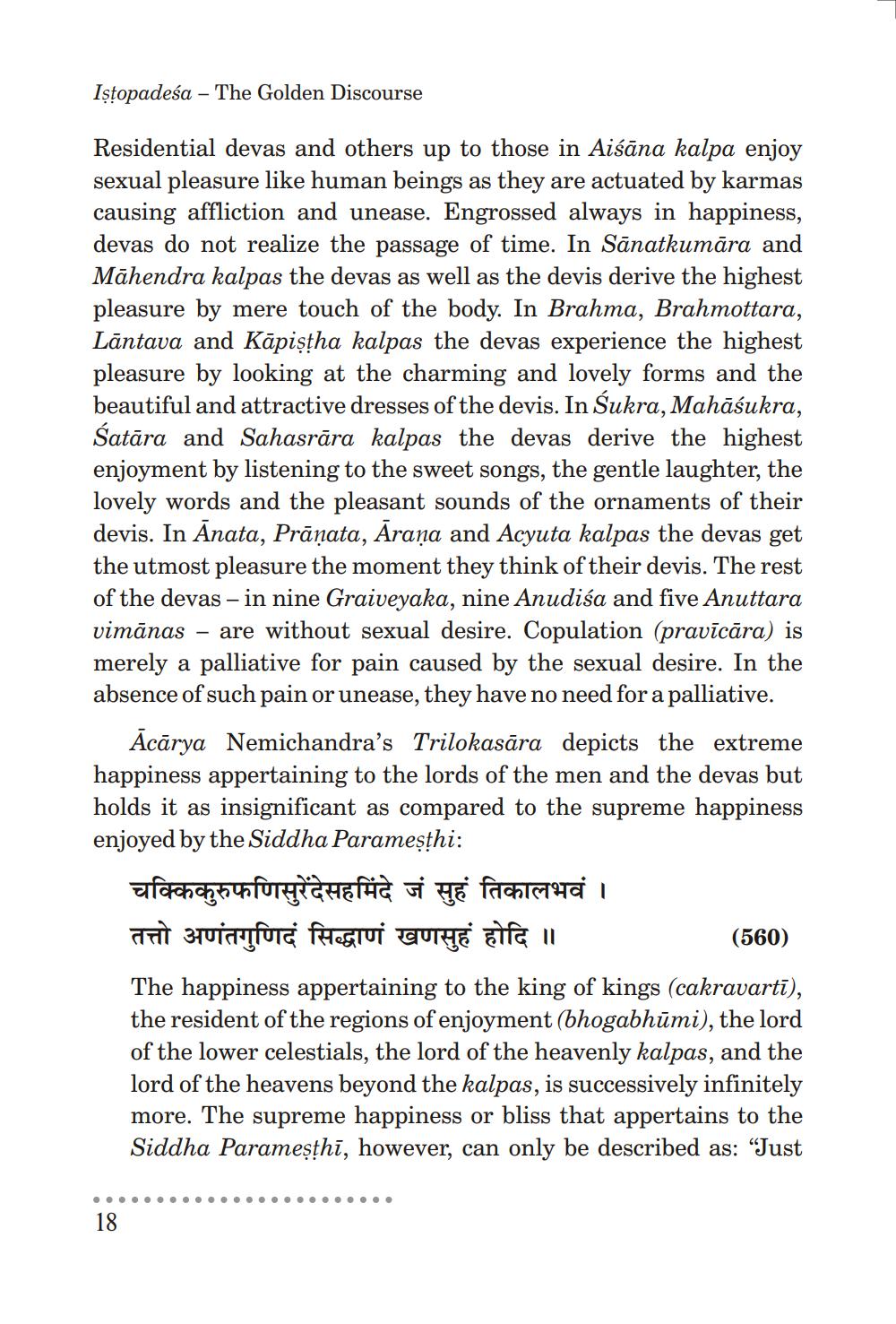________________
Istopadeśa - The Golden Discourse
Residential devas and others up to those in Aiśāna kalpa enjoy sexual pleasure like human beings as they are actuated by karmas causing affliction and unease. Engrossed always in happiness, devas do not realize the passage of time. In Sānatkumāra and Māhendra kalpas the devas as well as the devis derive the highest pleasure by mere touch of the body. In Brahma, Brahmottara, Lāntava and Kāpiştha kalpas the devas experience the highest pleasure by looking at the charming and lovely forms and the beautiful and attractive dresses of the devis. In Sukra, Mahāśukra, Śatāra and Sahasrāra kalpas the devas derive the highest enjoyment by listening to the sweet songs, the gentle laughter, the lovely words and the pleasant sounds of the ornaments of their devis. In Ānata, Prāṇata, Āraña and Acyuta kalpas the devas get the utmost pleasure the moment they think of their devis. The rest of the devas – in nine Graiveyaka, nine Anudisa and five Anuttara vimānas – are without sexual desire. Copulation (pravīcāra) is merely a palliative for pain caused by the sexual desire. In the absence of such pain or unease, they have no need for a palliative.
Ācārya Nemichandra's Trilokasāra depicts the extreme happiness appertaining to the lords of the men and the devas but holds it as insignificant as compared to the supreme happiness enjoyed by the Siddha Parameşthi:
चक्किकुरुफणिसुरेंदेसहमिंदे जं सुहं तिकालभवं । तत्तो अणंतगुणिदं सिद्धाणं खणसुहं होदि ॥
(560) The happiness appertaining to the king of kings (cakravarti), the resident of the regions of enjoyment (bhogabhūmi), the lord of the lower celestials, the lord of the heavenly kalpas, and the lord of the heavens beyond the kalpas, is successively infinitely more. The supreme happiness or bliss that appertains to the Siddha Parameșthi, however, can only be described as: “Just
...
..
........
..
18




